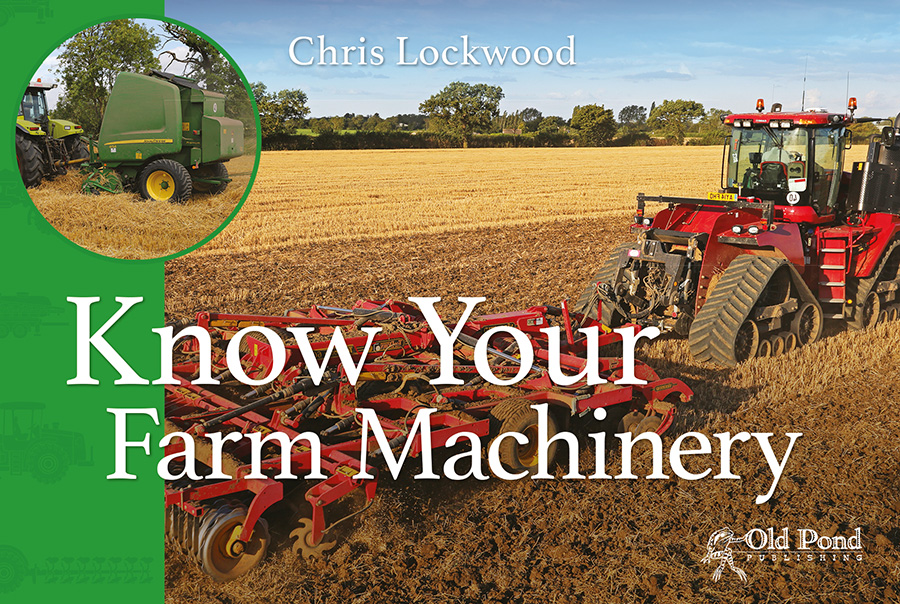Rural publisher’s tips for would-be farmer authors
Got an idea for a farming-related book? You’ll want to know how a publisher decides whether to give a proposal the thumbs-up. Rachel Turner, a commissioning editor at Old Pond Publishing, shares her perspective.
I am always looking for potential new authors and anything that encourages people to put pen to paper can only be a good thing.
So, what am I looking for in a new book and how do you go about getting your book published?

Rachel Turner
See also: Bestseller Rebanks shares ‘Shepherd’s Life’ secrets
Certainly our customers, farmers and countryside enthusiasts enjoy books about tractors and farm machinery, particularly when they are bursting with photographs.
Books which discuss the real-life experience of farmers are also popular.
As are books containing plenty of humour and wit.
If you have an idea buzzing around your head that ticks one or more of these features then, chances are, I would consider it.
Decisions on which new titles to commission are sometimes a matter of instinct although checking sales of similar titles provides a useful guide.
I would love to find the next Henry Brewis as, despite his books being decades old, they are still extremely popular.
Our most successful books have been in the “Know Your” series – 30-40 postcard-sized pictures on an animal or machinery theme, with a short explanation of each.
Simple but very effective.

Unfortunately, it can be difficult to predict which books will be the bestsellers; sometimes the ones that you think are fantastic don’t do so well and others that you think will simply trickle along fly off the shelves.
New ideas are sent to me at all stages of the process.
Some authors just have an idea; others have written an entire manuscript; most are somewhere in between.
I accept creativity at any stage, but would advise the potential author to approach a publisher at the first phase.
After all, it’s better to find out if your book has market interest sooner rather than later to save yourself time and heartache down the line.
So, firstly research your potential publisher. There is no point sending a farming book publisher your novel about a young orphan wizard going off to wizarding school.
It may well be the next Harry Potter but it just is not what they do.
There aren’t a huge number of publishers working in the farming field (no pun intended), so look through the books you have on your shelves to see who published them or look at a publisher’s catalogue to see that they publish books on your chosen subject.
Some publishers outline their submission requirements on their websites so check there first and, if not, call them to ask.
Commissioning/acquisition editors are human and it is in their interest to publish new and exciting ideas, so they will probably be pleased to get your call and to find out about the book.
Typically, a publisher may have a book proposal form for you to fill in, which will ask for a description of the book (even if you have the whole manuscript ready).
Include details about your background (just your relevant work experience – we don’t need to know what you got in your GCSEs/O-levels), who you’re aiming the book at, whether there are any competing books available and whether you have any ideas for marketing it.
When describing the book, think about how you would describe it if you were actually talking about it, as frequently people leave out the most obvious points.
Always give as much detail as you can; it may be your one and only chance to sell the editor your idea and they may send the proposal out for review to people with an interest in the subject area, to see if they agree if the idea is a good one.
The editor will probably then have to sell the idea to colleagues, too, so make it easy for them.
The editor may ask to see a sample of writing (to prove that you can actually write) and may give some useful tips for how to develop the book.
It may sound a lot but if you have got an idea in mind, you have nothing to lose – you could well be on the way to making your book-writing dream a reality.
Old Pond
- An imprint of 5M Publishing
- Established by Roger Smith in 1997 in Ipswich
- Bought in 2014 by 5M, based in Sheffield/Oxford
- Topics of interest: vintage tractors, other farm machinery, earthmoving machinery, vintage trucks and tales of life on a farm/in the country/truck driving – particularly funny ones
- 13 books published in 2015; 15 planned for 2016
- Bestselling books: Know Your Sheep, Know Your Tractors and Know Your Cattle – all published in 2008
- Average man hours spent on each book: probably at least 200
- Rachel has managed the Old Pond list since 2014 – after having spent eight years working in the law sector of publishing
- More information at www.oldpond.com
